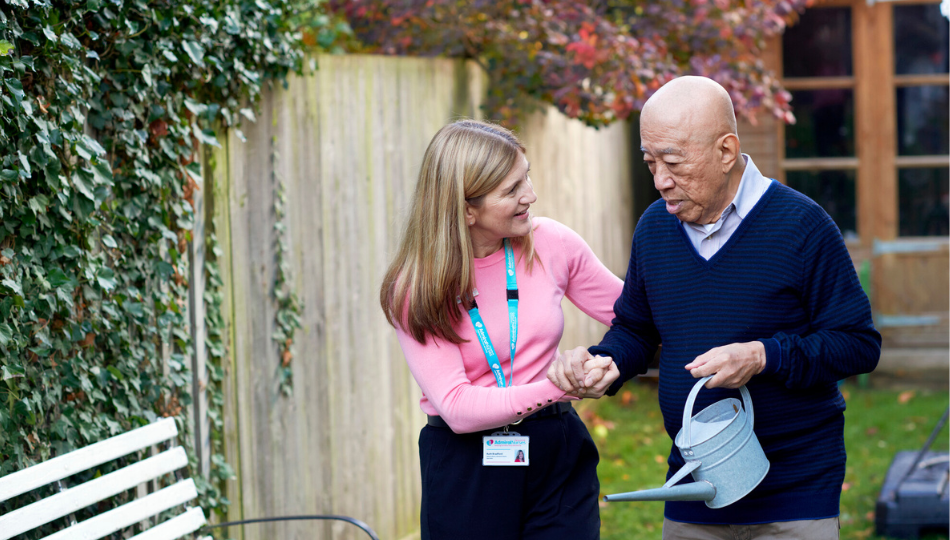
Donate
Help us raise vital funds, improve care and support for families facing dementia and spread the word about our specialist dementia nurses.
Dr Gayle Madden, Admiral Nurse Professional and Practice Development Facilitator, talks about how couples living with dementia can work together to manage their household, to ensure the person with dementia maintains their sense of identity.
Dementia impacts the balance in a couple’s relationship especially when managing household duties, like food shopping, cooking, cleaning and finances. In a couple, each person takes on different responsibilities, and although these may evolve or change over time, each person has a set of responsibilities that gives them a sense of purpose and value.
When someone has dementia and needs to be cared for it is critical that they retain their sense of purpose and value in the home – for the good of the partnership and the couple’s quality of life. Research has shown that frustration, anger or aggression can be mistaken as a symptom of a person’s dementia, when they are actually expressing their upset with the changes that are occurring within their home life. This can especially happen to women with dementia who tend to have an emotional attachment to caring and managing the household.
Here are some tips for professional and family carers to help the person with dementia feel involved in the running of the household, with their other half, so they maintain a sense of purpose and value:
It’s important that people who have dementia retain their sense of identity and a perception of independence, for their own well-being and their carers. By understanding the values of the person with dementia a couple can adapt their lives to ensure togetherness, so their relationship isn’t at risk of being controlled by the dementia diagnosis.
Dr Gayle Madden’s advice is based on the findings from her Professional Doctorate research paper, which studied the experiences of women, who have Alzheimer’s disease, becoming cared for and receiving assistance with daily living activities. If you are a professional carer or academic who would like to know more about her research project please contact Gayle by email.

Help us raise vital funds, improve care and support for families facing dementia and spread the word about our specialist dementia nurses.

Call or email our Dementia Helpline/Alzheimer's Helpline for reassuring and practical advice from our specialist team of Admiral Nurses.